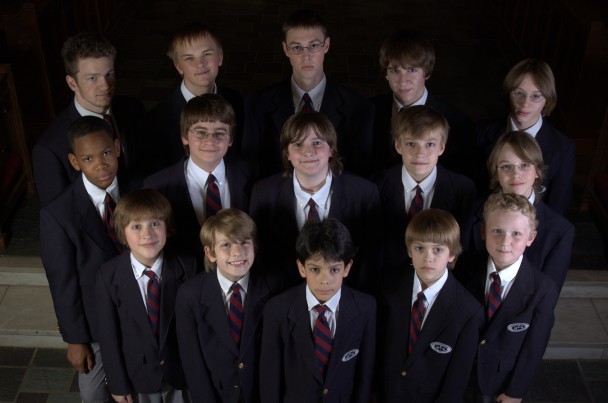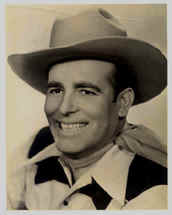A bit of Internet serendipity:
The news reached me that longtime BBC weatherman Michael Fish was being put out to pasture for the sin of being almost 60 and not at all telegenic. I remember watching his nightly forecasts during business trips to the UK.
The article was an op-ed piece by Conservative MP Boris Johnson, who referred to Fish's "sex maniac's moustache".
It may have been his permanently bashful air. It may have been his sex maniac's moustache. Perhaps it was something to do with the way he goggled at the camera in the manner of a rattled maths master asked at the last minute to give out the prizes. It may have been the colossal Britishness of Fish, not just evinced by his constant talk of weather, but his faint air of apology for the frost and the drizzle and the general damp. It may have been the unremitting politeness with which he broke the bad news about tomorrow's downpour, like a man in the Tube, reluctantly tugging your sleeve to announce that you are treading on his toe.
The piece goes on to present some interesting stats on weather forecasting -- you would attain a 76% accuracy rating if you always predicted that tomorrow will be just like today. (That may be true in England. I doubt it's true in Oklahoma.)
I only vaguely remembered what Michael Fish looked like, and couldn't imagine what kind of mustache fit that description (Daliesque? Fu Manchu? Toothbrush?), so I googled his name and found a photo here, along with a bio. (That link no longer works, but here is a gallery on Michael Fish's own website, showing the evolution of his facial hair over the decades.) Further googling led me to the lyrics to a song by Rowan Atkinson in praise of Mr. Fish.
[Rowan] Atkinson: Michael Fish, quite simply the most charismatic figure in the history... of entertainment.
[Angus] Deayton and Singers: He tells it straight... to the nation... every night... he's an inspiration... He tells the truth...
Atkinson: He does, he tells it to you, he tells it to you.
Deayton and Singers: Monday to Friday...
Atkinson: Monday, Tuesday, Wednesday, Thursday, Friday and sometimes Saturday and Sunday.
Deayton and Singers: His moustache... is always tidy...
The site with the lyrics looked interesting -- a tribute to something called "Chart of the Flops", which appears to have been a radio program similar to Dr. Demento. Here is the list of songs that made the chart in its 10 year history, with lyrics for many of them. Included are Dr. Demento standards and classic American novelty tunes like "Fish Heads", "Monster Mash", "Hello Mudduh", "Der Fuehrer's Face", several selections each from Weird Al, They Might Be Giants, and Tom Lehrer, along with their counterparts from across the pond -- Monty Python, Peter Sellers, the Goons, the Goodies.
One of the songs on the list was "The Highway Code" by the Master Singers, which is apparently the British rules of the road set to music. I have not hear that, but years ago I heard another one of their songs on Dr. Demento -- "Weather Report", which was a weather forecast set in Anglican chant and sung to perfection. (It may not sound much to you, but it had me laughing.) I googled the Master Singers and found this blog entry, which contained a link to an MP3 file of "Weather Report".
Both "Highway Code" and "Weather Report" hit the British charts in 1966. The songs were produced by George Martin, who also was producer for the Beatles. One website (which has a good description of Anglican chant) says that the Master Singers later became the King's Singers (who have a new Christmas album), but I see nothing on the King's Singers website mentioning that, although the group unofficially began at Cambridge a year before the two singles reached the charts. But this page says the group consisted of four teachers from Abingdon School, and that they backed Peter Sellers on a cover of the Beatles' "Help!"
I had googled this before, but had always come up empty in the past. Which brings us back to the weather and Michael Fish, which is what started me down this path.
Go and have a listen to the weather report.
UPDATE: You can hear the current shipping forecast -- one is included in the Master Singers' version -- at the BBC weather website, which has a map explaining what Forties Cromarty Dogger Fisher German Bight means. Link courtesy Two Chaps Talking, who say: "Listening to the Shipping News on a short wave radio, or indeed via their website, is a rare delight and should be enjoyed regularly for its calming effect."
UPDATE again: Fixed a link above, which was to a blog category rather than the permanent link to the blog entry. Also, someone reported to me he clicked on the link for the MP3 file and was greeted with a very rude ad about body part enlargement. I double-checked and nothing like that happened to me -- I suspect the computer he's using has some spyware on it, or else the previous site he visited "respawned" and popped up a window as he left it. Anyway, please know that I will not deliberately link you to something rude, so if something like this happens to you, please e-mail me at blog at batesline dot com and let me know.
Yet another UPDATE: A thoughtful reader from the UK has sent a link to an MP3 of "The Highway Code" by the Master Singers. Be aware that these files may disappear at any time, and be considerate of the bandwidth of those who are hosting them. Another reader, with an e-mail address from the Royal College of Music, writes:
Actually, two of the Master Singers (including Geoffrey Keating) were
teachers at Cheadle Hulme School, Cheshire. They were there by 1965.
Geoffrey Keating moved on to Millfield in 1970. They may all have been at Abingdon before 1965, I suppose. Members of the Master Singers and the King Singers were friends (a Cambridge connection probably), and the Kings Singers came to sing at Cheadle Hulme, but I don't think that there was any overlap in membership. The Master Singers were a few years older than the first Kings Singers, as I recall.
One more UPDATE (1 October 2004): A reader points out, correctly, that this isn't plainsong at all, it's Anglican chant, which is harmonized, while plainsong is unison.
Another UPDATE (26 September 2006): On the anglican-music mailing list earlier this year, John Botari believes he has identified the three chants used for "Weather Forecast":
I once took the trouble to figure out which chants were used for The Weather Forecast; there are three of them (sung A-B-C-B-A).
Here's what I came up with:
A - George Mursell Garrett (1834-97)
The only place that I could find this one was
at #268 in the ECUSA Anglican Chant Psalter,
in Ab. (Certainly *not* where the Mastersingers
found it!)
B - W. Taylor
Found (in Db) at #232 in The Parish Psalter
with Chants (ed. Sydney Hugo Nicholson), or
(in D) at #129 and #335 in the Oxford Chant
Book No. 1.
c - Stephen Elvey (1805-60)
Found (in G) at #116 in The Parish Psalter,
or (in F) at #9 and #342 in the ECUSA Anglican
Chant Psalter.
Yet another UPDATE (7 May 2007): Helen Keating, wife of Geoff Keating, one of the Mastersingers (using her spelling), has written me with the definitive account of the Mastersingers, the Highway Code, and the Weather Report.


